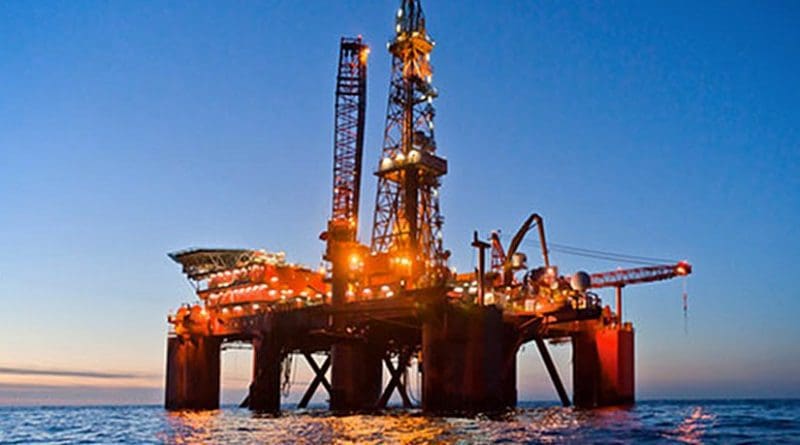Oil Price Rise Revives North Sea Projects – OpEd
By Arab News
By Faisal Mrza*
Brent crude rose to $65.74 per barrel over the week while WTI ticked higher to $56.07 per barrel.
The gains came despite bearish sentiment driven by negative economic data from China while Libya ramped up production to almost 1.1 million barrels per day (bpd), after the restart of the giant El-Sharara oil field.
Since February, Brent crude has moved in a narrow range of $62-64 per barrel.
While the move by Norway’s sovereign wealth fund to divest from the oil sector was perceived bearishly in the short term, the longer-term impact is less clear.
Norway is the largest oil producer in Europe, with about 1.5 million bpd of crude production from the North Sea. But these are matured fields that have experienced a huge drop in output from a peak of about 3.4 million bpd reached in the year 2000.
Though oil majors Shell, BP, Total and ExxonMobil hold significant stakes, the Norway fund withdrawal might affect decisions on future upstream investments.
North Sea offshore oil fields are among the oldest in the world, and so need huge investment in new technologies to enhance oil recovery. Also, offshore oilfield development costs are much higher than onshore, while offshore oilfields represent only around one quarter of fields globally.
Offshore oil projects have suffered the most from capital expenditure cuts made upstream during the oil price slump of 2015 to 2017.
As reported by Bloomberg, drilling activity dropped in the North Sea offshore oil fields to four-decade lows in 2017 as companies cut spending to cope with the falling oil price.
The break-even level for new oil projects is around $45 to $50 per barrel for Brent crude price. Therefore, when Brent price rose to $86 per barrel in October 2018, optimism came back for potential new oil projects.
The decision by Norway’s sovereign wealth fund to divest from the oil sector came in a crucial year — one which is expected to witness a return of confidence to the oil sector in the North Sea as new exploration and development projects commence.
Wood Mackenzie expects 2019 to be a come back year in North Sea exploration. Drilling is expected to reach pre-downturn levels with expectations of more than 40 exploration wells being drilled, up from 27 in 2018.
Oil will continue to play a major role in global energy markets for the long-term, and hefty investment is still required for new projects if the energy industry is expected to meet future demand.
- Faisal Mrza is an energy and oil market adviser. He was formerly with OPEC and Saudi Aramco. Reach him on Twitter: @faisalmrza

